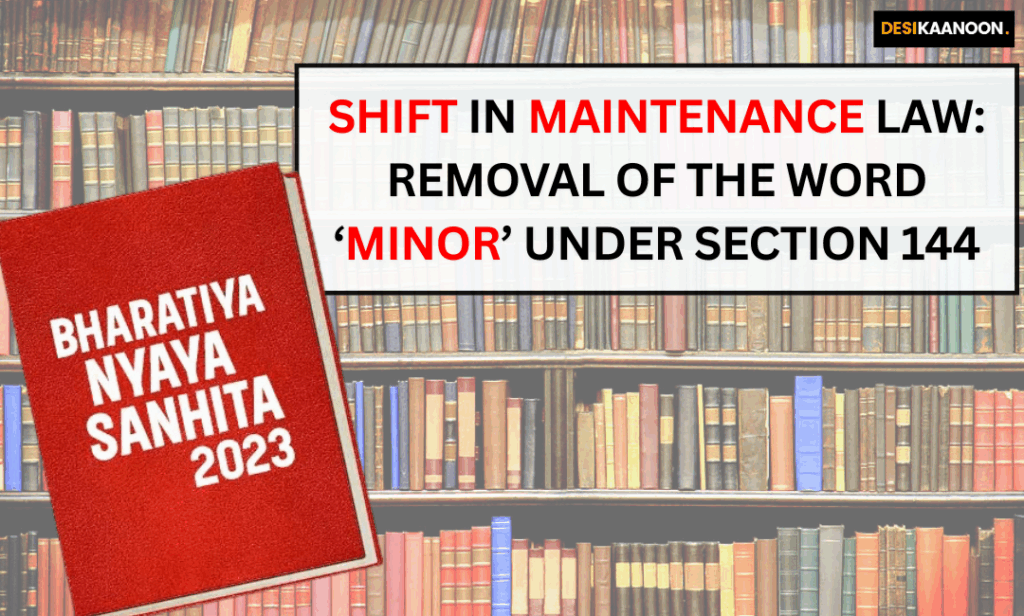Alok Singh
Section 144 of the BNSS, which replaces Section 125 of the CrPC, marks a major shift in maintenance law by removing the word “minor” and expanding the right to maintenance to adult children who are unable to support themselves.
On July 1, 2024, the Code of Criminal Procedure (CrPC), 1973, was repealed and replaced by the Bharatiya Nagarik Suraksha Sanhita (BNSS), 2023. One of the important provisions under the CrPC was Section 125, which allowed wives, children, and parents to seek maintenance if they were unable to maintain themselves. This provision was treated as a tool for social welfare and applies in secular design, i.e. it will be applied irrespective of religion. The Supreme Court in the case of Fuzlunbi v. K. Khader Vali (1980) 4 SCC 125 called this provision secular in nature and said it reflects the State’s responsibility for social welfare.
Section 125 of the CrPC has now become Section 144 of the BNSS. Although the structure remains similar, there is one major change. The word “minor” has been removed from Section 144(1)(b), the first proviso, and the explanation clause. This change is important because earlier, only minor children could ask for maintenance. Now, even a child who has become a major can claim maintenance from their father if they are unable to maintain themselves.
This shift shows that the legislature wanted to expand the scope of the provision. It is no longer limited to just minor children. In fact, the Supreme Court in Amarendra Kumar Paul v. Maya Paul (2009) 8 SCC 359 had observed that once a child becomes a major, Section 125 no longer applies. But under the BNSS, major children who are unable to maintain themselves are now covered.
For girl children, if she is married and her husband cannot support her, the Magistrate may order her father to pay maintenance until she becomes a major. For unmarried girls, even if they are majors and unable to support themselves, they can now also seek maintenance. The same applies to male children, as the law does not make any special rule for them. This was not possible earlier under Section 125.
The BNSS also keeps a special rule for major children who are physically or mentally unwell. According to Section 144(1)(c), if a child has a physical or mental problem and cannot support themselves, they can get maintenance even if they are major.
However, the use of the word “majority” here might cause confusion in future legal interpretation. Some may argue that since clause (c) mentions “major” children, clause (b) should not cover them unless they have a disability. This is why some believe the legislature should have also removed the word “majority” from clause (c) to make the law more consistent.
An important question now is whether Section 144 will apply to cases that were filed before July 1, 2024. In the present case, the Supreme Court allowed a more beneficial provision under the BNSS (related to undertrial prisoners) to apply to old cases too. Since Section 144 is also a welfare provision, it is hoped that courts will give it retrospective effect, meaning it would apply to pending maintenance claims as well.
Instagram: Click here
LinkedIn: Click here
For Collaboration and Business: info.desikaanoon@gmail.com

